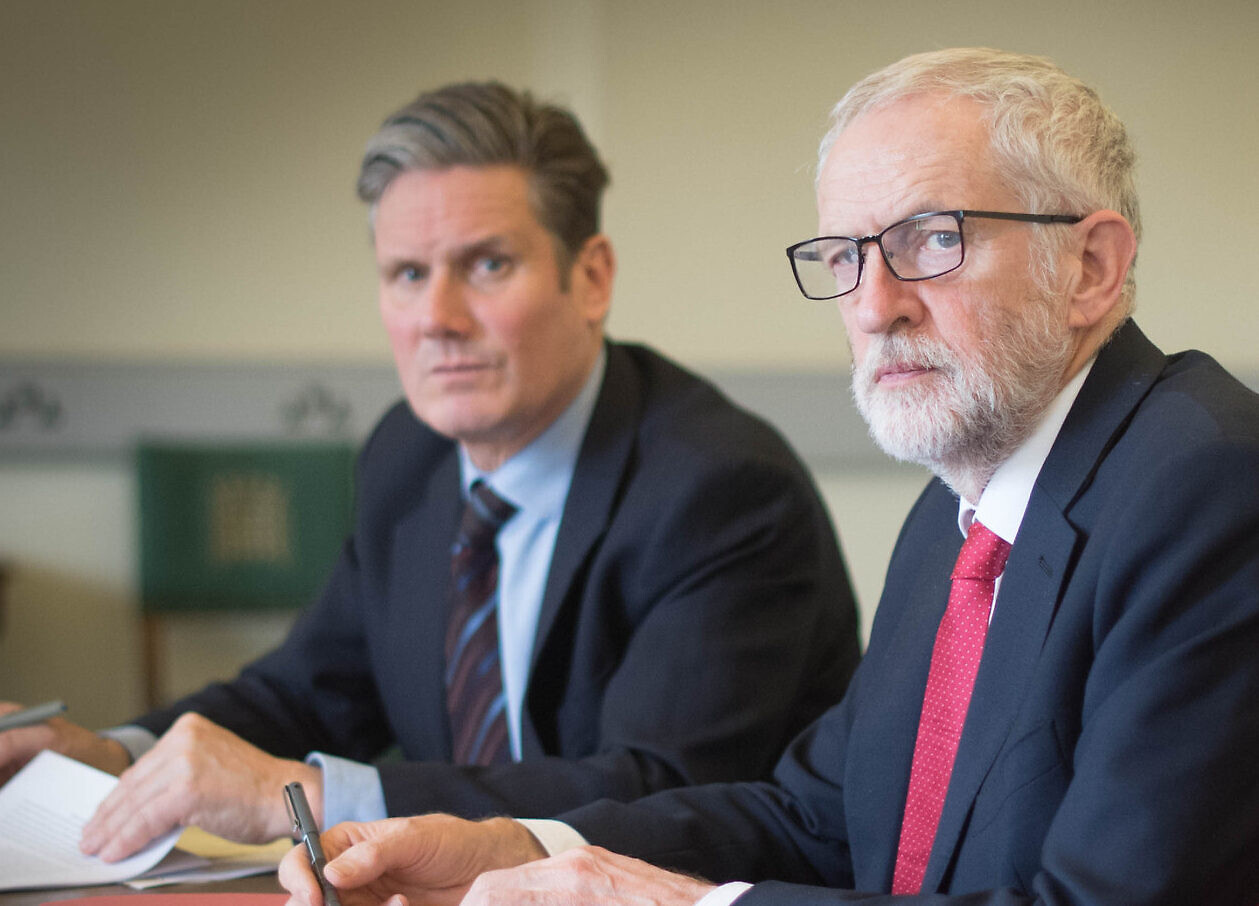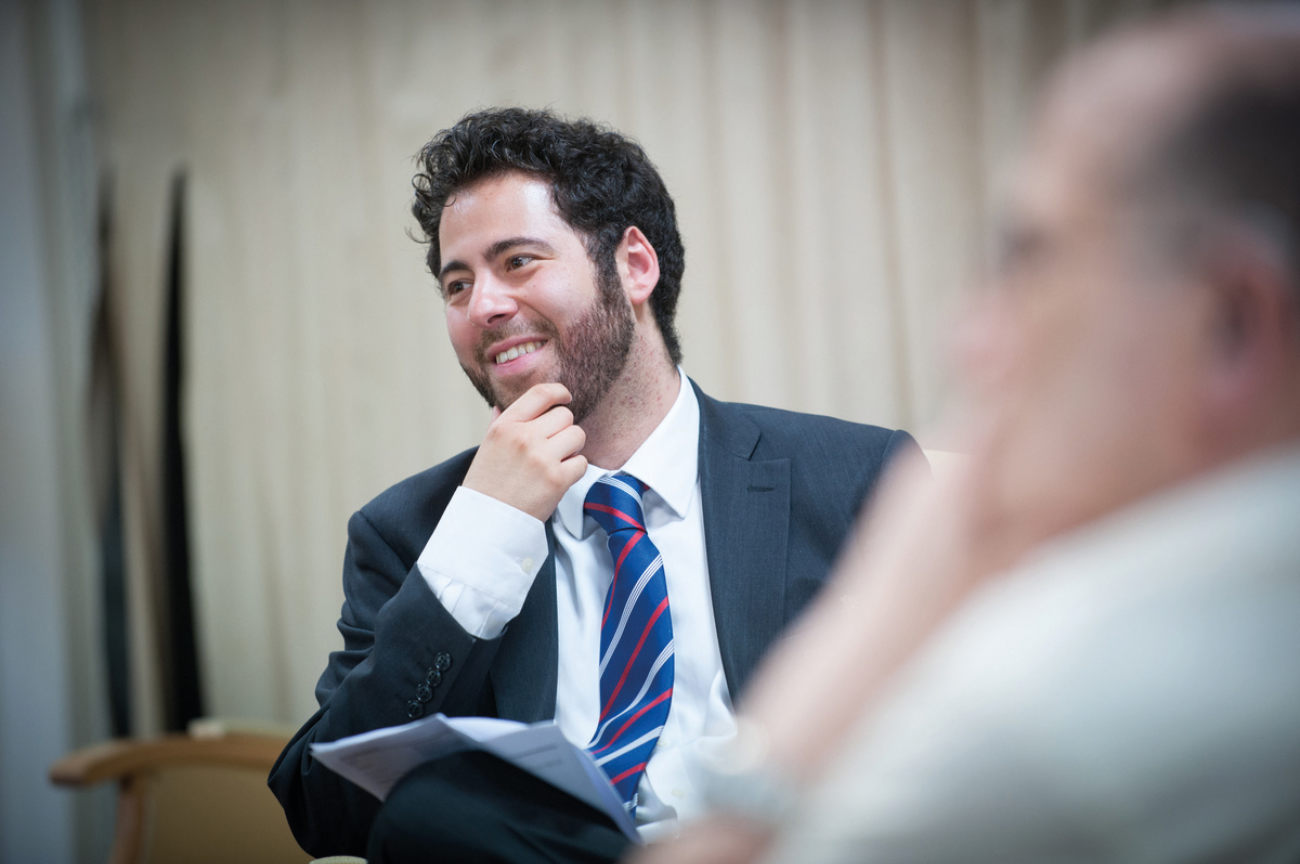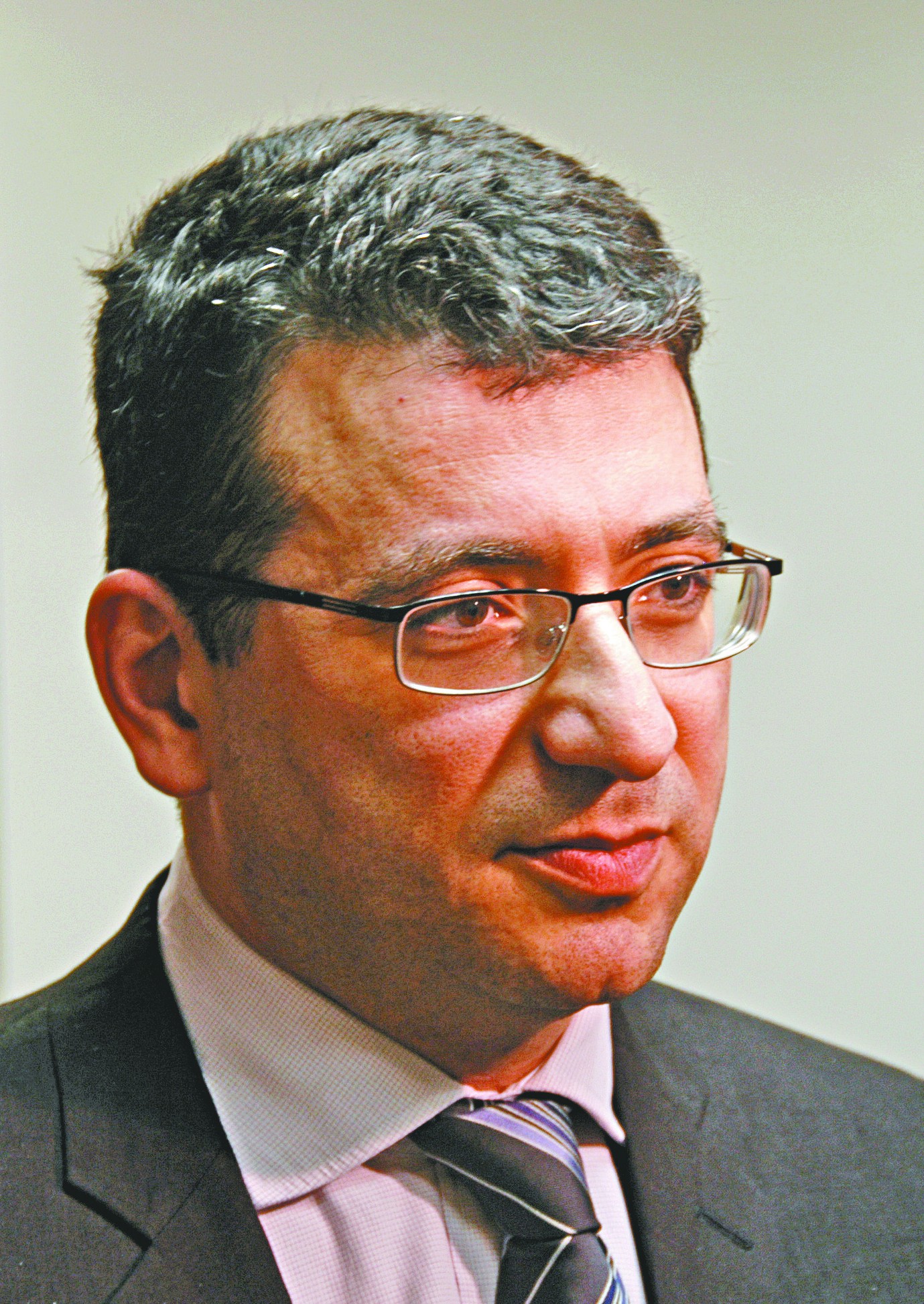Is ‘antisemitism’ no longer fit for purpose?
In wake of the EHRC's damning report into Labour's antisemitism problems, we look at the adopting of a new term - anti-Jewish racism - by some communal groups and individuals

In the maelstrom and vitriol that followed the Equality and Human Rights Commission’s damning report into the Labour Party under Jeremy Corbyn last month, few noticed the near total omission in the response from the Jewish community of the very word the EHRC had just reported on: ‘Antisemitism’.
In a joint statement, the Board of Deputies and the Jewish Leadership Council said the report “disgraces those who attacked us for speaking out against anti-Jewish racism”, calling Jeremy Corbyn “a figurehead for old and new anti-Jewish attitudes”.
The Jewish Labour Movement said it had been warning of a “deepening casual culture of anti-Jewish racism” since 2015. The Holocaust Educational Trust said it confirmed “the depth of the endemic anti-Jewish racism in Labour”.
Get The Jewish News Daily Edition by email and never miss our top stories Free Sign Up
Labour Friends of Israel praised Keir Starmer for starting “to root out anti-Jewish racism”. Even Labour Against Antisemitism (LAAS) distanced itself from its own name, talking about the party’s “institutional anti-Jewish racism”.
Commentators soon picked up the baton. In his searing column, Jonathan Freedland of the Guardian began with ‘antisemitism’ but ended up asking “why anti-Jewish racism might take root”.
Yet the change was already underway. In September, the Union of Jewish Students slammed universities for “failing to sufficiently protect their Jewish students from anti-Jewish racism, the oldest form of racial hatred”.
Later that month, the Antisemitism Policy Trust – which may now need renaming – said Microsoft’s chatterbot had “learned from its social media interactions to post anti-Jewish racism”.
Two weeks ago, it even seemed to have filtered through to the BBC, its news site saying Labour had “failed to stamp out anti-Jewish racism when Jeremy Corbyn was leader”. Goodbye old Jew hatred; hello new rebranded one.

Some may see this as odd, given all the fights it took to get here. For a start, there was the heave-ho over the infamous dash – aka The Battle of the Hyphen – when ‘anti-Semitism’ faced off against ‘antisemitism’.
Then there was the scrap over ‘what antisemitism is’, with criticism of the International Holocaust Remembrance Alliance (IHRA) working definition giving way to a slow acceptance across the UK.
Yet odd it is not, because the switch to “anti-Jewish racism” is neither natural evolution nor incidental lexicography, as evidenced in the Jewish Leadership Council (JLC)’s annual financial filings, published online last month.
Going back a couple of years, as Labour’s antisemitism woes began to resonate both in the media and throughout Westminster, the JLC said it “took the opportunity to educate not just those involved in politics but the wider public”.
It held eight focus groups, with the help of Gabriel Milland and Public First, and conducted polls from the end of 2018 and through 2019 which “proved hugely beneficial to our understanding of the penetration of the issue amongst the public, as well as what successful messaging looked like”.
Enlighteningly, it says: “One example is the shift from the term antisemitism – a word with absolutely no recognition in one focus group – to the more recognised notion of ‘anti-Jewish racism’. We have made a concerted effort to use this language.”
Here it was, then: recognition that this is a purposeful change, because the word ‘antisemitism’ had in some cases “absolutely no recognition” from the public. What it meant, in other words, often meant nothing.
A spokesman says the focus groups were held in Dudley, South Manchester, Putney and Croydon, “to avoid major centres of Jewish life” but also to have a good UK spread, and that they showed huge differences.
“In Croydon, despite it being nowhere near any big Jewish communities, everyone had met a Jewish person,” he says. “In Dudley, only one person had.”
The organisation went all in on research – its YouGov poll sampled 5,000. It also polled the Jewish community through Survation “to ensure we fully understood the levels of concern”. It then shared its work with communal organisations.
JLC joint chief executive Claudia Mendoza calls it “the most substantial public opinion research into Labour’s antisemitism crisis”, adding that “there were some striking findings, most notably a lack of understanding” of the term ‘antisemitism’.

“Using this understanding we successfully shifted the terminology used towards ‘anti-Jewish racism’, in no way to downplay the uniqueness of antisemitism, but to ensure that no one misunderstood our grave concerns,” she says.
Others were engaged – and wholly onboard. “We suspected that the public basically didn’t know what the word ‘antisemitism’ means,” says Mark Gardner, chief executive of the Community Security Trust, the charity charged with defending British Jews from antisemitism. “But the research showed that it was a deeper problem than we had realised.”
To some, this is less revelatory. Danny Stone, chief executive of the Antisemitism Policy Trust, cites a 2014 UCL poll in which 68 percent of almost 8,000 respondents were unfamiliar with the term antisemitism, and/or unaware of its meaning.
“It’s no surprise that Jewish groups want to talk about ‘anti-Jewish racism’, as we’re doing. I think it’s quite helpful, because antisemitism is a complex word,” he says. “I know of some people saying ‘antisemitism, what does that mean?’ Not only the understanding of the word, but it’s spelling can also be contentious.”

He recalls moves at the UN to widen the meaning of ‘antisemitism’ to include all Semitic peoples, but Semitism “legitimises a form of pseudo-scientific racial classification thoroughly discredited by association with Nazi ideology”, showing how the word ‘antisemitism’ can be “mis-used and played upon”.
The Board of Deputies’ public affairs director Phil Rosenberg goes further, describing how the changed communal tack is as much a response to those with political agendas as to those with none.
“It stems from two things,” he says. “First, there can be a lack of knowledge. Whilst racism is widely understood, not everyone knows that antisemitism is a form of racism.
“Second, some on the far-left tried to claim that ‘real’ racism was worse than antisemitism. They also insinuated that we were claiming antisemitism to be more important than other forms of racism.

“By using the term ‘anti-Jewish racism’ we remove their ability to do that by being clear that antisemitism is a form of racism and is not in competition with any other form of prejudice.”
Is this a trend? Five years hence, will we all be speaking ‘anti-Jewish racism’? “Not really,” says Stone. “If they find it has better cut-through you may see Jewish groups using it more, but I’d be surprised if the language developed in that way.”

Is it a case of in-speak and out-speak? Is there talk of ‘anti-Jewish racism’ to a non-Jewish audience and ‘antisemitism’ to a Jewish audience? “No, I mix it up,” he says. But the driver is foremost because ‘anti-Jewish racism’ cannot be misunderstood? “Exactly.”
The last word, appropriately for a discussion on antisemitism, goes to Gardner. “Anti-Jewish racism is not a perfect form of words,” he says. “Ideally it would be said in conjunction with the word ‘antisemitism’ to make the meaning clearer. But it makes the point.”
In other words (pardon the pun), ‘anti-Jewish racism’ is the new ‘antisemitism’ because it does what it says on the tin.

Thank you for helping to make Jewish News the leading source of news and opinion for the UK Jewish community. Today we're asking for your invaluable help to continue putting our community first in everything we do.
For as little as £5 a month you can help sustain the vital work we do in celebrating and standing up for Jewish life in Britain.
Jewish News holds our community together and keeps us connected. Like a synagogue, it’s where people turn to feel part of something bigger. It also proudly shows the rest of Britain the vibrancy and rich culture of modern Jewish life.
You can make a quick and easy one-off or monthly contribution of £5, £10, £20 or any other sum you’re comfortable with.
100% of your donation will help us continue celebrating our community, in all its dynamic diversity...
Engaging
Being a community platform means so much more than producing a newspaper and website. One of our proudest roles is media partnering with our invaluable charities to amplify the outstanding work they do to help us all.
Celebrating
There’s no shortage of oys in the world but Jewish News takes every opportunity to celebrate the joys too, through projects like Night of Heroes, 40 Under 40 and other compelling countdowns that make the community kvell with pride.
Pioneering
In the first collaboration between media outlets from different faiths, Jewish News worked with British Muslim TV and Church Times to produce a list of young activists leading the way on interfaith understanding.
Campaigning
Royal Mail issued a stamp honouring Holocaust hero Sir Nicholas Winton after a Jewish News campaign attracted more than 100,000 backers. Jewish Newsalso produces special editions of the paper highlighting pressing issues including mental health and Holocaust remembrance.
Easy access
In an age when news is readily accessible, Jewish News provides high-quality content free online and offline, removing any financial barriers to connecting people.
Voice of our community to wider society
The Jewish News team regularly appears on TV, radio and on the pages of the national press to comment on stories about the Jewish community. Easy access to the paper on the streets of London also means Jewish News provides an invaluable window into the community for the country at large.
We hope you agree all this is worth preserving.
- News
- Jeremy Corbyn
- Equality and Human Rights Commission
- Board of Deputies
- the Jewish Leadership Council
- Jewish Labour Movement
- Labour Friends of Israel
- Labour Against Antisemitism (LAAS)
- Jonathan Freedland
- the Guardian
- Union of Jewish Students
- Antisemitism Policy Trust
- International Holocaust Remembrance Alliance (IHRA)
- Danny Stone
-
By Laurent Vaughan - Senior Associate (Bishop & Sewell Solicitors)
-
By Laurent Vaughan - Senior Associate (Bishop & Sewell Solicitors)
-
By Laurent Vaughan - Senior Associate (Bishop & Sewell Solicitors)
-
By Laurent Vaughan - Senior Associate (Bishop & Sewell Solicitors)






















